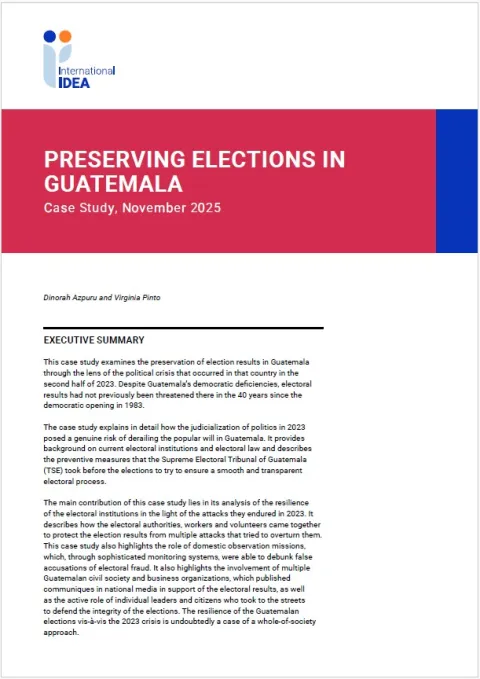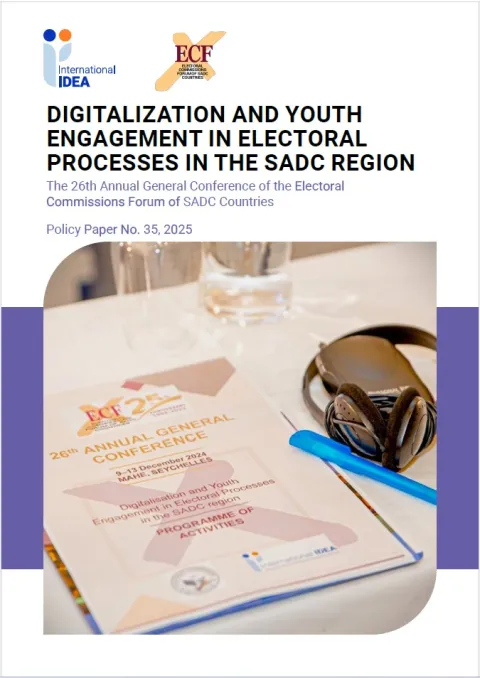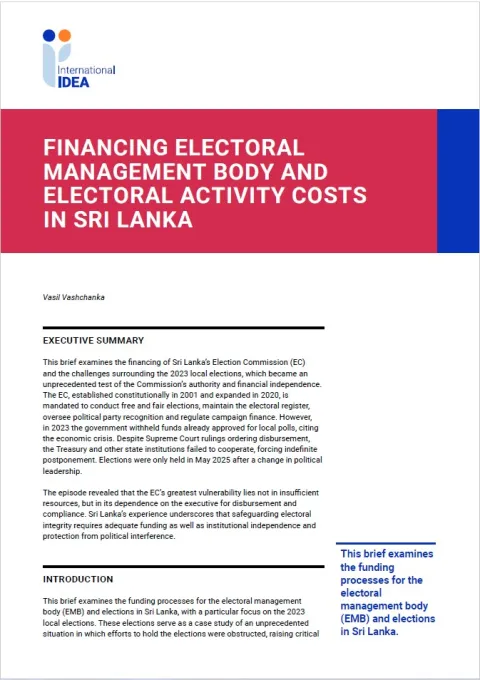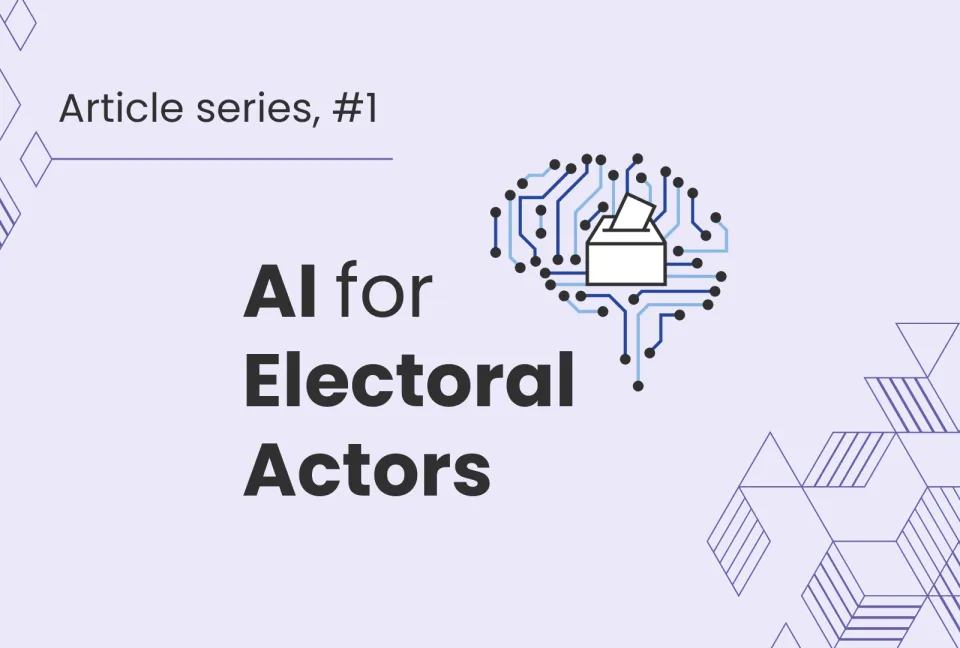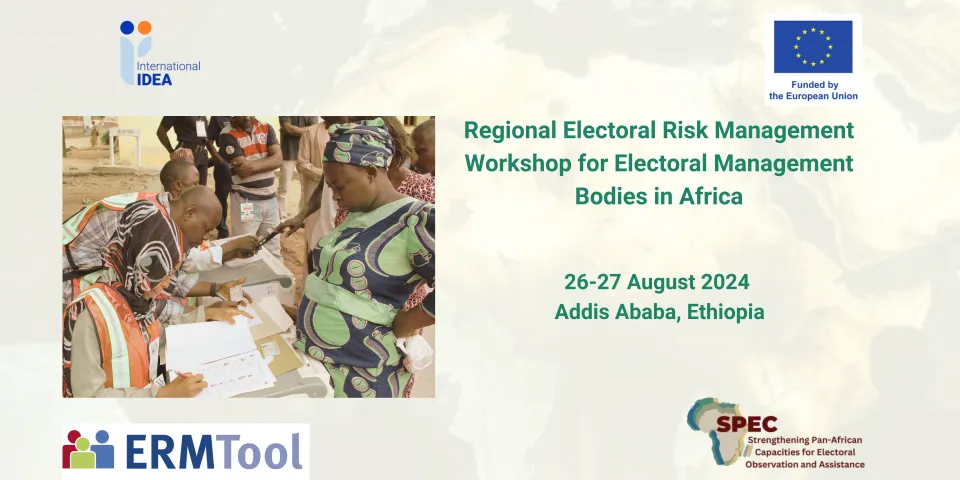Independence in Electoral Management
Elections are the cornerstone of democratic political processes, serving as a mechanism for political parties or candidates to compete for public office under equal conditions before the electorate. For an election to be credible, the competition must be fair, requiring impartial management of the process. As described in International IDEA’s Handbook on Electoral Management Design (Catt et al. 2014), electoral management bodies (EMBs) are the state institution or institutions established and mandated to organize or, in some instances, supervise the essential (or core) elements of this process.
This Primer focuses on the establishment of EMBs as institutions normatively, structurally and functionally independent from government. It examines the benefits and limitations of the legal and institutional framework, governance structure, remit, autonomy over their resources, and contextual approaches that facilitate their functional independence, applicable to different legal and political contexts. The Primer discusses EMB independence and EMB relations with all stakeholders engaged in an electoral process at the national level.
Details
Staff author
Related databases & tools
Contents
Acknowledgements
1. Introduction
2. What is the issue
3. Basic design options
4. Additional considerations for EMB independence
5. Contextual considerations
6 Conclusion
References and further reading
Annex
Give us feedback
Do you have a question or feedback about this publication? Leave us your feedback, and we’ll get back to you
Send feedbackIndependence in Electoral Management
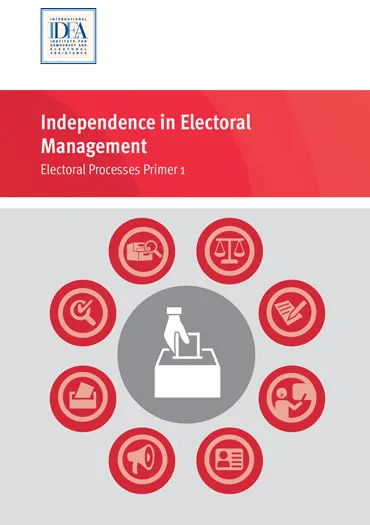
| Total views | 11041 |
|---|---|
| Downloads | 536 |
| Rating |
Staff author
Related databases & tools
Give us feedback
Do you have a question or feedback about this publication? Leave us your feedback, and we’ll get back to you
Send feedback


